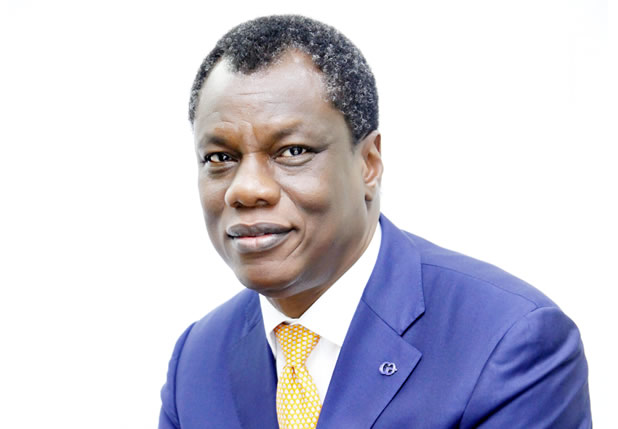ICT
Experts list losers in FinTech, draw roadmap on inclusion @ NITRA summit
Published
7 years agoon
By
Olu Emmanuel
Segments of the Nigerian population that were apparently left behind in Financial Technology (FinTech) inclusion have been revealed.
It would be recalled that the World Bank had in earlier days of technology revolution, averred that Financial Inclusion means that individuals and businesses have access to useful and affordable financial products and services that meet their needs and delivered in a responsible and sustainable way using modern technology.
In his lead presentation and keynote speech at the 3rd Quarterly Forum of the Nigeria Information Technology Reporters Association (NITRA) in Lagos weekend, the managing director of Global Accelerex, Mr. Tunde Ogungbade said the list of potential losers in the globally trending FinTech in Nigeria include: Low-income families; The unemployed; The elderly; Those living in rural or remote areas; Immigrants; Illiterates / Low literacy level; and those with disabilities.
According to him, another set of Nigerians who are also losers include those who distrust banks and other financial institutions or feel that they are outside the system.
Speaking on the theme; ‘Digital Payment: Prospects and Challenges of a Financially Inclusive Nigeria’, Ogungbade averred that the regulators, operators and the media have major roles to play in driving awareness that will make those distancing themselves from the digital services to understand the true benefits.
In his submission, he said “Digital payment will help manage money more effectively with new ways to save, make payments, access credit, or obtain insurance”.
Continuing, he made it clear that many of the people who are shying away from gaining access are not aware of the advantages in running their daily businesses as FinTech, will among other things, make people spend less time taking care of simple financial transactions and more on productive work or running a small business of their own and digital financial services increases consumer activity and trade
He however, decried observed dropping trend in usage of digital payment platforms by average Nigerians in the last few year.
He said World Bank statistics showed that Mobile money agent registered per 100,000 adult dropped from 30.07 in 2012 to 17.53 in 2016 and also, Mobile money account active per 1,000 dropped from 30.67 in 2012 to 23.07 in 2016.
But was quick to reveal that Mobile money transaction in terms of number of persons per 1,000 adults grew from 24.60 in 2012 to 452.57 in 2016 and is still rising.
The Annual Financial Access Survey (FAS) data by the International Monetary Fund (IMF) showed progress in some of the indicators of the Sustainable Development Goals and also shows innovations in financial access, such as mobile making inroads in the Automated Teller Machines (ATMs) which has increased from 11.49 in 2012 to 16.73 in 2016 per 100, 000 adults.
Also, the report revealed reduction in the number of physical traditional bank branches from 5.81 in 2012 to 5.36 in 2016 per 100, 000 adults.
The Mobile Money Active Accounts in the report indicated that there had been level of adoption in digitalized mobile money payment indicating 34.26 per 1000 adults.
The Global Accelerex boss further noted that percentage of adult Nigerians that do not have access to financial services has moved from 46.3% in 2010 and 39.7% in 2012 to 20% in 2020, projecting that well over 70% of adult Nigerian’s should have access to payment services in 2020
He relied on a Central bank of Nigeria (CBN) report to list channels through which people can access the services such as branches of banks, microfinance banks, number of ATMs, mobile agents, POS, agents of deposit money banks are also expected to increase to specified target numbers per 100,000 adults in 2020.
In his further submission, Ognugbade listed critical segments of players in the National Financial Inclusion Strategy (NFIS) who must up their game to drive FinTech further.
These include the Service Providers which are financial institutions and partner infrastructure and technology providers.
There are also the Enablers who he described as regulators and public institutions responsible for setting regulations and policies in respect of financial inclusion.
ALSO SEE: Telecom operators engage in 34,837 porting activities in August – NCC
Then, the Partners and Experts who can be seem as supporters of Nigeria in meeting its economic objectives and delivering on their technical assistance mandates.
Providing antidote to how best to halt the poor access of FinTech in Nigeria, Ogungbade called for strong campaign on financial literacy, consumer protection, expansion of access points, growth in agency banking to capture the unbanked rural and remote communities, growth in linkage banking and enhancing credit scheme, stronger and accessible mobile money operations and simplified Know Your Customer (KYC) framework agent across the country.
Earlier in his opening remarks, the chairman of the occasion and founder of CWG Plc, Mr. Austin Okere called for strategic policies that will make access to FinTech seamless as the trend is a global race; only nations that get it well on time will rule others.
According to him, India got it better early enough and is now becoming world highest exports of related services and FinTech.
In his welcome address, the Chairman of NITRA and ICT Editor of ThisDay Newspaper, Mr. Emma Okonji said “The introduction of cashless policy by the CBN in 2012, helped to further drive financially inclusive Nigeria’s vision to the level we are today”
He added that “Going by the global technology advancement, especially in the digital payment space, Nigeria cannot afford to miss out in today’s knowledge revolution, having missed out in the previous industrial revolutions. Nigeria must therefore key into the current global technology trend, where digital transaction is the order of the day”.
Trending

 Comments and Issues2 days ago
Comments and Issues2 days agoAs Ariwoola takes the judiciary to the top of the grease pole

 Business6 days ago
Business6 days agoNMDPRA Chief faces backlash over comment on Dangote Refinery

 Business1 week ago
Business1 week agoGlobal cyber outage disrupts flights, Banks, telecoms, Media

 Business1 week ago
Business1 week agoKPMG criticizes FG’s 50% windfall tax, foresees legal disputes

 Business5 days ago
Business5 days agoZenith Bank retains position as Nigeria’s Tier-1 capital leader

 Comments and Issues5 days ago
Comments and Issues5 days agoOnanuga and the Surprise from Joe Igbokwe

 Education7 days ago
Education7 days agoJAMB reacts to allege age limit by ministry of education

 News6 days ago
News6 days agoPhilip Shaibu officially joins APC, dumps PDP





